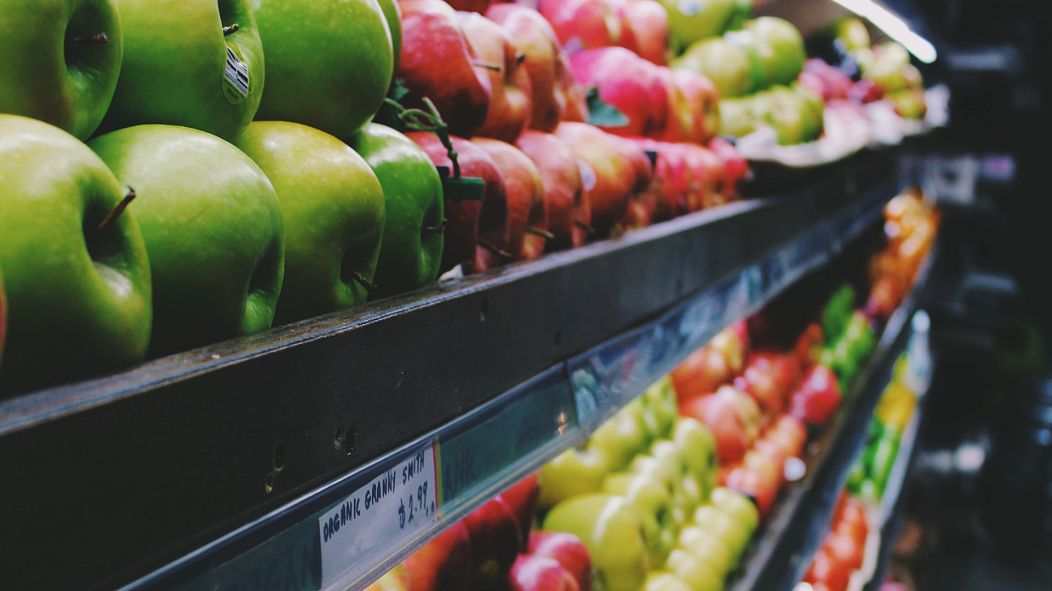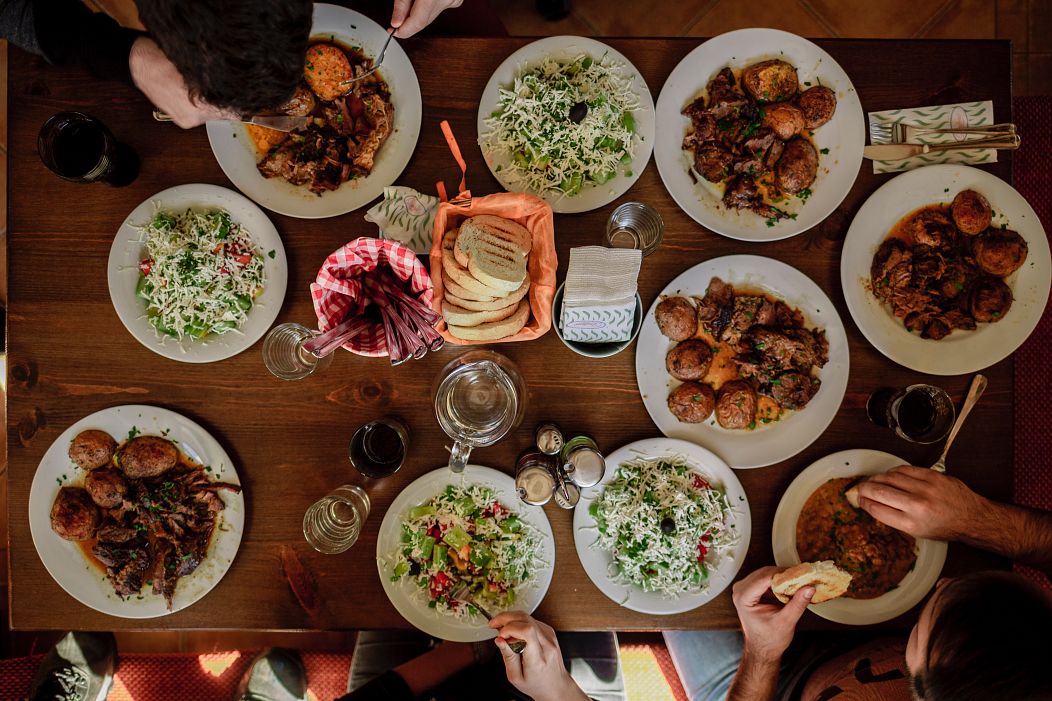From batch cooking to store cupboard staples, what's the best way to use up food during the COVID-19 lockdown?
Across Europe, meal take-away services have experienced a noticeable spike in the number of orders received since self-isolation measures began. This is being put down to what is best described as “cooking fatigue”, the feeling of wanting to eat lazily rather than having to cook all our own meals from scratch. There’s no doubt that this is a shift for most of us and it’s easy to get into the habit of buying surplus food each week, to ensure that you don’t run out. The problem is, this leaves potential for a lot of food to be wasted as we don’t know how best to store it or use it up by its appropriate expiry date.
 ADVERTISEMENT
ADVERTISEMENT
 ADVERTISEMENT
ADVERTISEMENT
Research by environmental charity Hubbub in the UK reveals that almost half (45 per cent) of those surveyed are more worried about food than before the COVID-19 crisis began. Of the 2,000+ adults asked, 90 per cent said their shopping and/or cooking habits have changed since the lockdown started. On the plus side, over half are planning meals more carefully and 41 per cent are getting better at using leftovers.
To help us all make the most of what we buy, Hubbub is offering ten tips to get us through this challenging period.
“We know that the experience of lockdown is hugely mixed for the UK’s households. Some people are using the time to brush up on their cooking and trying new things, while others are juggling work and childcare while preparing around a third more meals than they normally do,” Aoife Allen, head of food projects at Hubbub told Euronews Living.
These tips aim to help people “store food so that it lasts longer, and make sure nothing goes to waste,” she concludes.
10 tips to avoid wasting food
- Plan ahead – plan your week’s meals and only buy the food you need
- Avoid panic buying – we are all still able to shop once a week, so you don’t need to buy enough food for a month
- Check expiry dates when you’re shopping
- Remember that food might still be eaten after its ‘best before date’ – check it looks and smells OK. Food past its best can still be enjoyed.
- Make room in your freezer so you have plenty of storage space and check out this guide to the food you can freeze – it’s more than you think.
- Many of us have neighbours who might not be able to get out to shop, so offer to share surplus food with them, whilst remembering to observe government guidelines on hand washing and social distancing
- Make the most of store cupboard staples to bulk up meals – now is the time to make use of those chickpeas, beans and rice that have been sitting in your cupboard for some time.
- Batch cook meals and freeze them for future use
- Check out some of the online resources for free cooking and growing tips and lessons, such as social media channels for Hubbub, Mob Kitchen and Borough Market
- Take the opportunity of more time with your children to teach them valuable cooking skills to set them up for a healthier and more sustainable future
How much food ends up in the bin on average?
According to the European Commission, around 88 million tonnes of food waste is generated annually in the EU. This comes with associated costs estimated at 143 billion euros. Wasting food is not only an ethical and economic issue, it also depletes the environment of limited natural resources.
We spoke to Dr Effie Papargyropoulou, lecturer in Sustainable Food Networks at The University of Leeds, to find out what else can we do to limit discarding food as much as possible.
“There's no silver bullet when it comes to reducing food waste at the home and every household has different needs and limitations,” she begins. Crucially, “it is important not to individualise the responsibility to reduce waste (i.e. always blaming the consumer) this is a systemic problem and all players (big and small) have a role to play.” She continues, “it's also important not to patronise or stigmatise people. Cooking and eating are culturally important social practices, and everyone is different.”
Dr Papargyropoulou also mentions the importance of meal planning. “You might not need a whole butternut squash in a risotto dish, but you can use the rest to make a soup another day in the week before it goes off,” she says.
At this challenging time during lockdown, Dr Papargyropoulou recommends “using this time as an opportunity to be more experimental and creative: substituting ingredients with the ones you have in your fridge rather than sticking exactly to a recipe.”
If food really can’t be salvaged, she concludes, make sure to discard of it appropriately in a compost bin. Food scraps are a valuable resource that can be turned into nutrient-rich compost to fertilise crops in future.












